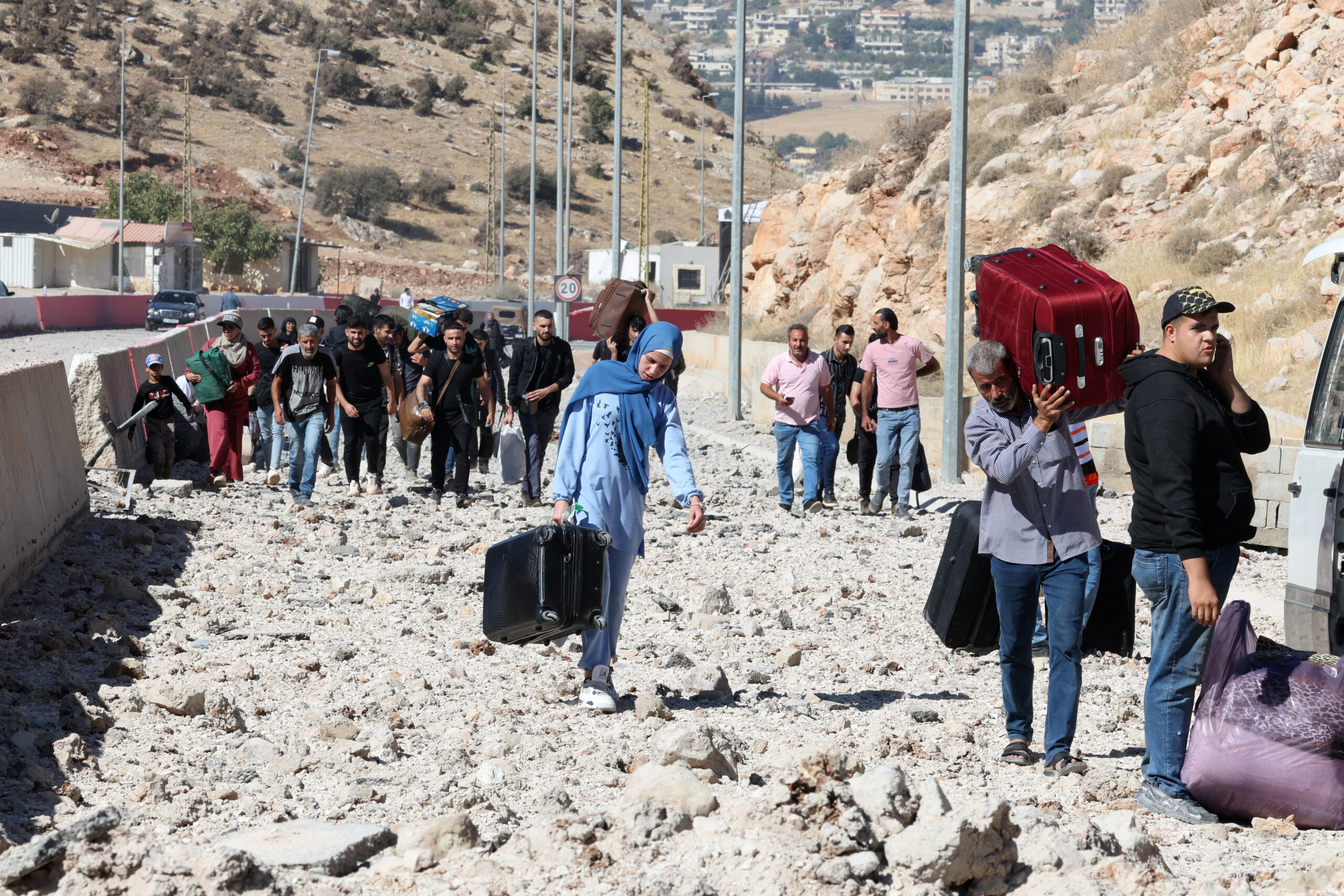
On Friday, October 4, Israeli warplanes launched a raid on the Masnaa border crossing, a key connection between Syria and Lebanon. The strike disrupted the flow of refugees fleeing Israeli bombardments in southern Lebanon, further exacerbating the region’s already fragile humanitarian situation. Lebanese Transport Minister Ali Hamieh confirmed that the attack caused significant damage to the road, creating a four-meter-wide crater, and cutting off a vital escape route for civilians.
As Israeli airstrikes continue to pound the southern regions of the country, thousands of refugees go to the Masnaa crossing seeking refuge in Syria. According to official Syrian statistics, over 200,000 Syrians and 72,000 Lebanese have crossed into the country since Israeli attacks began.
Israel’s airstrike not only damaged infrastructure but also effectively severed a key lifeline for displaced people attempting to flee the escalating violence. The humanitarian consequences of these attacks have been severe. Lebanon, already hosting more than 1.2 million displaced, is facing an increasingly dire situation. Shelters across the country are nearing full capacity, and many are forced to sleep in the open. With the onset of winter, conditions are expected to worsen, adding to the already growing humanitarian crisis.
Those crossing into Syria find their situation equally challenging. With infrastructure devastated by years of Russian and Assad regime bombings, the influx of refugees is putting additional pressure on limited resources within Syria.
Attacks on the Masnaa crossing and other border areas are part of an Israeli strategy. According to IDF officials, the purpose of these operations is “disrupting the flow of weapons from Iran to Hezbollah.” The Israeli army has imposed a military blockade aimed at preventing the smuggling of weapons through both land crossings and Beirut International Airport.
Lebanese officials, including Minister Ali Hamieh, deny the use of crossings for arms transfers. Hamieh emphasized crossings remain under the strict control of Lebanese security forces. The targeting of border crossings, despite these assurances, has added to the challenges of providing humanitarian relief to those displaced by the conflict.
However, the IDF claims airstrikes targeted multiple tunnel networks, including one that reportedly spanned 3.5 kilometers across the Syrian-Lebanese border. Military sources claim the tunnel was under the supervision of Hezbollah’s Unit 4400, tasked with moving combat equipment from Iran to Hezbollah forces.
In recent days, Israeli aircraft also targeted the international road between the Jdeidet Yabous and Masnaa crossings, completely cutting off the road in both directions. The highway links Beirut and Damascus and was a lifeline for civilians fleeing the conflict, now, its destruction leaves both refugees and aid organizations without access to essential resources.
Al-Areeda, Saleh, and Qabash crossings have all been attacked by Israel, entrapping many civilians who now have no route for escape. The repeated targeting of crossings and roads has made transportation and movement nearly impossible for many displaced individuals, as entire roadways are left unusable.
Not only infrastructure but lives have been lost in Israeli strikes. In an attack near the town of Kfar Yabous, jets targeted a military site, killing five Assad regime soldiers. Other raids have injured Lebanese personnel guarding the crossings, in the Matraba border area, eight people were injured by the attack.
As Lebanon’s refugee shelters reach capacity and winter looms, the situation is set to worsen. The continued targeting of civilian infrastructure further undermines the efforts of international organizations to provide relief, and the plight of those fleeing the conflict continues to grow more desperate with each passing day.








